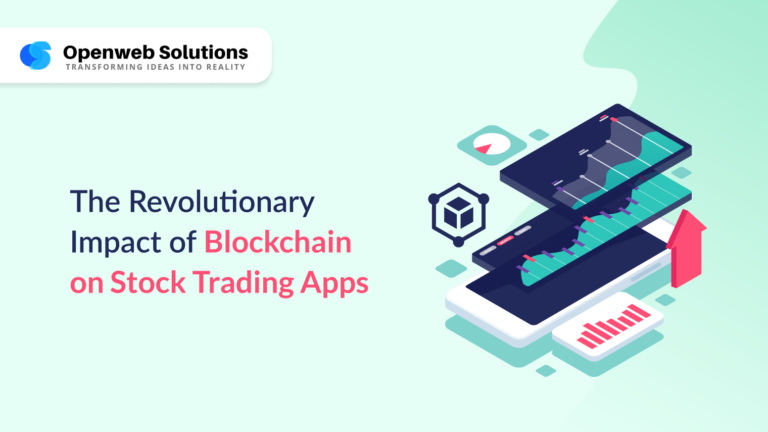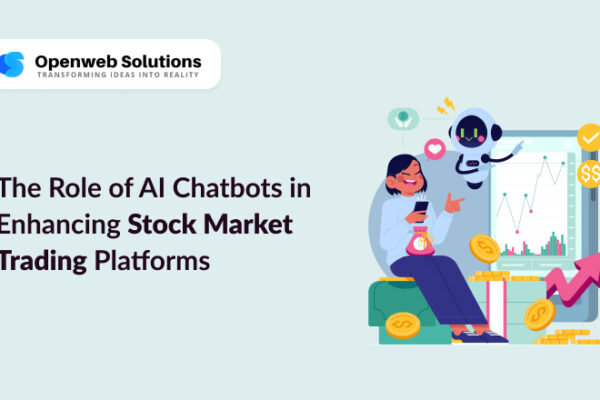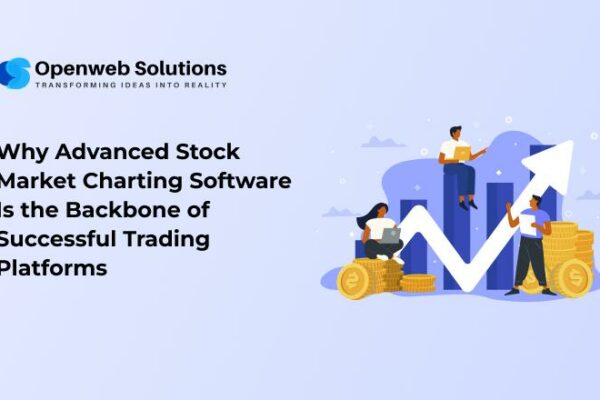Stock trading is a complex thing which cannot be handled through Wallstreet. Use of a decentralized and distributed ledger system can enhance different aspects of trading. This is blockchain technology. Blockchain technology is integrated by a Stock Market App Development company which can enhance security, increase transparency, and streamline operations, leading to a new era of trading efficiency.
Let’s study its revolutionary impact in detail.
Impact of Blockchain Technology on Stock Market Apps
1. Better Security and Trust
With the rise of cyber threats and fraudulent activities, safeguarding sensitive financial information has never been more critical. Blockchain technology provides a decentralized ledger system, making it nearly impossible for malicious actors to alter transaction data. Each transaction is securely recorded on a distributed ledger, ensuring that all parties can verify its authenticity. This level of security not only protects user data but also fosters trust among investors, as they can rest assured that their trades are secure.
2. Increased Transparency
Another revolutionary aspect of blockchain in stock trading apps is its ability to enhance transparency. Traditional stock trading platforms often involve intermediaries, which can obscure the true nature of transactions. However, when a stock market app development company integrates blockchain in your trading app, every transaction is recorded in real-time and can be accessed by all stakeholders. This transparency eliminates discrepancies and reduces the chances of manipulation, creating a fairer trading environment for all participants. As a result, the apps can provide users with greater confidence in their trades and investment choices.
3. Streamlined Operations
Efficiency is key in the world of stock trading. Hold-ups in transaction processing can cause missed chances and financial losses. Blockchain technology enables real-time settlement of trades, drastically reducing the time required for transaction completion. By removing intermediaries and automating processes, stock market software development can focus on creating seamless experiences for users. This streamlined operation not only enhances user satisfaction but also increases overall market liquidity, making it easier for investors to buy and sell stocks as they desire.
4. Cost Reduction
Integrating blockchain into stock trading apps can also lead to significant cost reductions. Traditional trading systems often incur high fees associated with middlemen, clearinghouses, and other intermediaries. However, by leveraging a decentralized system, these costs can be minimized. As a result, stock market app owners can offer competitive pricing models to attract users, ultimately benefiting both the developers and the investors.
Future of Stock Market Website Development
As we look ahead, the implications of blockchain for stock trading are immense. Stock market website development companies that use blockchain technology will change the pattern of trading through amazing websites. This shift will open new investment opportunities for users, allowing them to diversify their portfolios and engage with emerging financial products.
Winding up
The impact of blockchain on stock trading apps is undeniable. By enhancing security, increasing transparency, streamlining operations, and reducing costs, blockchain technology is set to redefine the trading landscape. For stock market app owners, this technology will act as a fuel to run trading seamlessly. As the demand for innovative solutions grows, investing in Stock Market Software Development that utilizes blockchain will be key to capturing the future of finance.
Stock Market Software Development
The FAQ’s
FAQ 1: What is blockchain technology, and how does it relate to stock trading apps?
Answer:
Blockchain technology is a decentralized and distributed ledger system that securely records transactions across multiple computers. In the context of stock trading apps, it enhances security, transparency, and efficiency by allowing users to verify transactions in real-time without relying on intermediaries. This reduces the risk of fraud and ensures that all parties have access to the same information.
FAQ 2: How does blockchain technology improve security in stock trading?
Answer:
Blockchain technology improves security by creating a decentralized ledger where each transaction is recorded securely and cannot be altered. This makes it nearly impossible for malicious actors to tamper with transaction data. Users can trust that their sensitive financial information is protected, fostering a sense of security in their trading activities.
FAQ 3: What benefits does increased transparency offer in stock trading apps?
Answer:
Increased transparency in stock trading apps allows all stakeholders to access real-time transaction data, eliminating hidden processes and discrepancies associated with traditional trading platforms. This transparency helps prevent manipulation and fraud, creating a fairer trading environment. Users can have greater confidence in their trades and investment decisions when they can see all relevant information.
FAQ 4: How does blockchain streamline operations in stock trading?
Answer:
Blockchain streamlines operations by enabling real-time settlement of trades, significantly reducing the time required for transaction completion. By removing intermediaries and automating processes, trading apps can provide a seamless user experience, enhancing user satisfaction and increasing overall market liquidity. This efficiency minimizes delays that could result in missed trading opportunities.
FAQ 5: What cost savings can be achieved through blockchain integration in stock trading apps?
Answer:
Integrating blockchain technology can lead to significant cost savings by minimizing fees associated with intermediaries, such as brokers and clearinghouses, commonly found in traditional trading systems. These reduced costs allow stock market app owners to offer competitive pricing models to attract more users, benefiting both developers and investors by providing lower trading costs.
Partha Ghosh is the Digital Marketing Strategist and Team Lead at PiTangent Analytics and Technology Solutions. He partners with product and sales to grow organic demand and brand trust. A 3X Salesforce certified Marketing Cloud Administrator and Pardot Specialist, Partha is an automation expert who turns strategy into simple repeatable programs. His focus areas include thought leadership, team management, branding, project management, and data-driven marketing. For strategic discussions on go-to-market, automation at scale, and organic growth, connect with Partha on LinkedIn.






